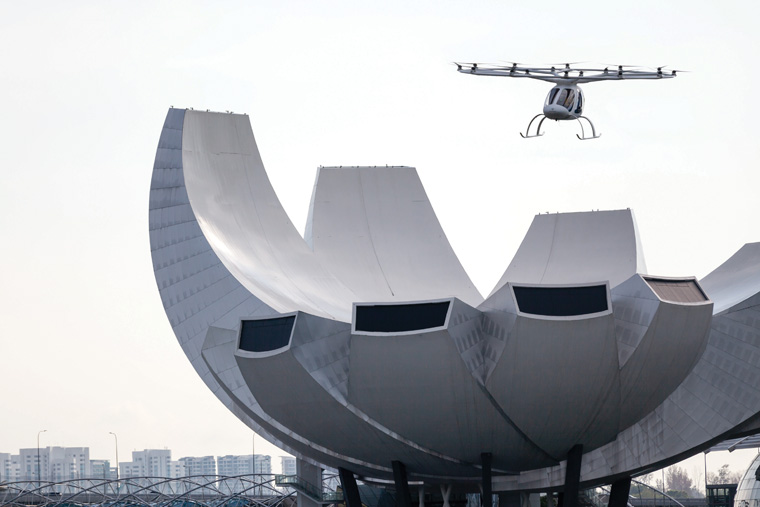On 22 October 2019, the Volocopter air taxi took its first manned flight over Singapore’s Marina Bay. The manned flight was the last trial of a demanding test series to verify and validate the ability of Volocopter air taxis to fly over the area.
The Volocopter flight is part of the German urban air mobility and air taxi pioneer’s grand venture with Skyports for the world’s full-scale air taxi vertiport – VoloPort. The VoloPort has been a project nearly two years in the making for Volocopter, who has been working with the Singapore government to focus on vehicle certification, airspace integration and pilot training, while Skyports has focused on the built environment aspects.
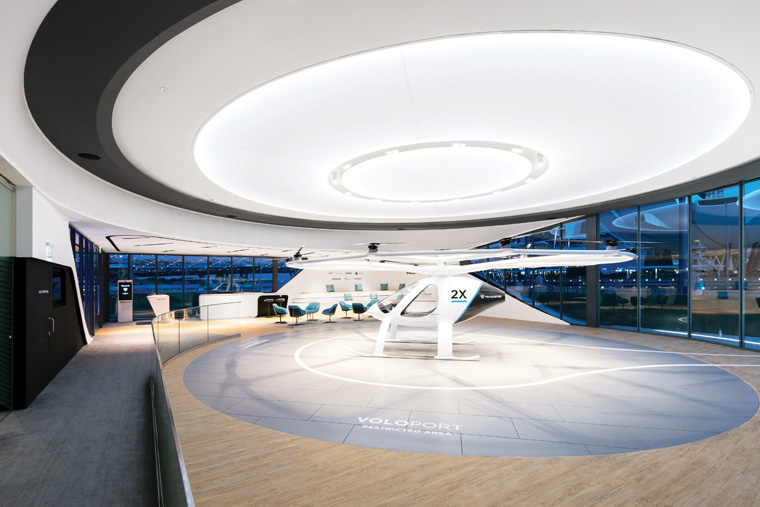
“The VoloPort is an important step towards establishing an entire air taxi solution in Singapore. Skyports has identified a number of potential VoloPort locations and air taxi routes across the city state,” said Duncan Walker, Managing Director of Skyports.
The VoloPort, an air taxi port, or vertiport, is designed to offer an exceptional passenger experience using the most modern safety and security processes. In urban cities like Singapore where real estate is costly, ground-based infrastructure is critical to the success of urban air mobility. The modular design of VoloPorts can be easily adapted to fit rooftops, railway stations, parking lots and other metropolitan locations, and no runway is needed for electrical vertical take-off and landing passenger air taxis. VoloPorts, with a single landing pad can accommodate 10-15 flights per hour, up to 150 flights a day and around 1,000 flights a week.
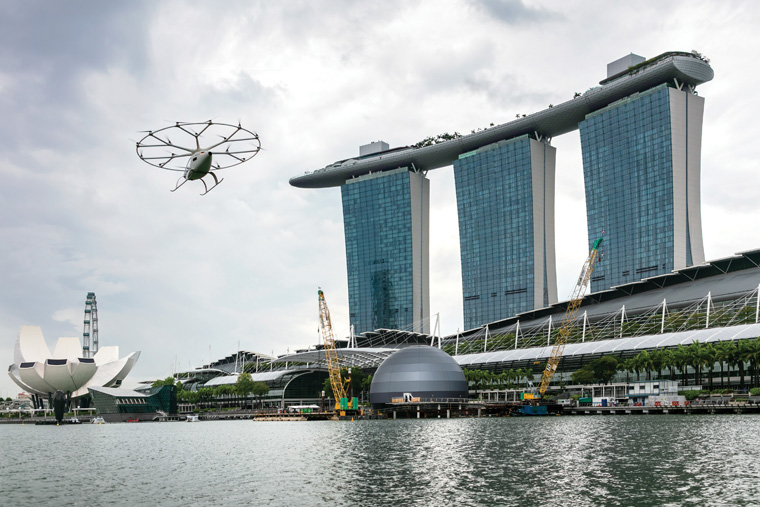
Although Singapore is well-known for its world-class public transport system, Skyports and Volocopter believe that an air taxi system would complement public transport seamlessly. “Singapore is not your typical congested city, such as Jakarta or Los Angeles, requiring air taxi services to fly over suffocating traffic. [However, Singapore] can utilise air taxis in a way to… [connect to] neighbouring islands that are currently underserved or introduce new connections for routes where existing infrastructure limits traffic flow during peak hours,” said Damian Kysely, Infrastructure Manager at Skyports in an interview with Jetgala.
The exciting promise of urban air mobility can serve a number of markets, from businesses and wealthy individuals seeking an exclusive means of journeying through the city skies, to the broader population, including daily commuters in the long-term.
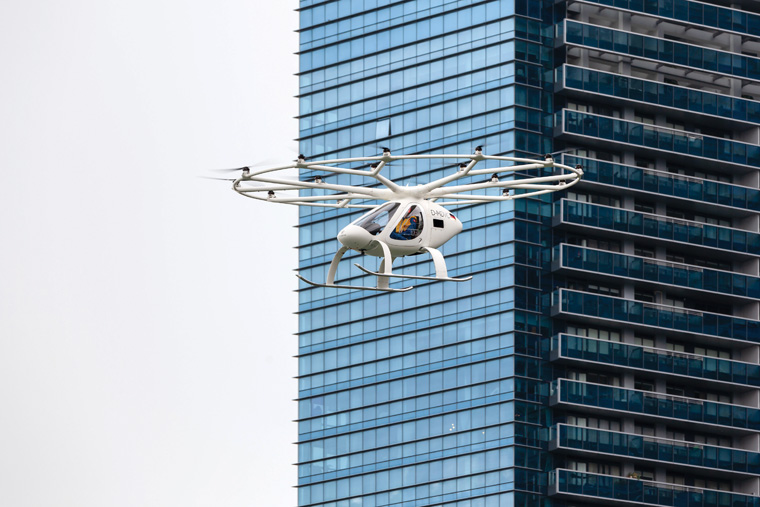
Starting air taxi ports, or vertiports, in Singapore has been quite a smooth process for Skyports and Volocopter, with few hiccups along the way. “Singapore has the advantage of having a very progressive urban planning framework and master plan, but it did not have any operational public use heliports, which we could have used as a starting point,” said Kysely.
Nevertheless, working with the Singapore government has been encouraging for both companies and choosing the Lion City to build the world’s first full-scale air taxi vertiport was an easy choice for Skyports and Volocopter. Kysely explained that “the Singaporean authorities are more progressive and innovative in their approach to regulation than many other countries, yet still take safety and security just as seriously, which make commercialisation of these new technologies more likely and at a faster pace than elsewhere.” He also said that “after [Skyports] establishes some initial use-cases and permissive regulations are in place, the vertiport approval process should become a streamlined and standardised process.”
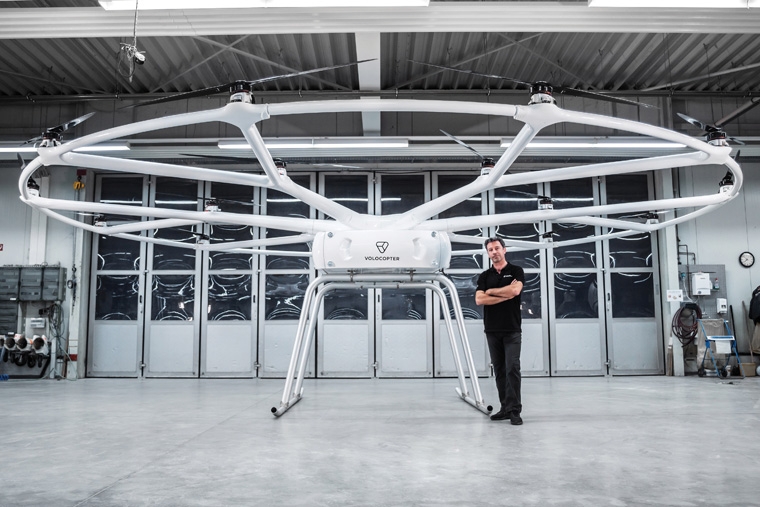
It took the partnership of Skyports and Volocopter the past six months to build the VoloPort, which was successfully unveiled at the ITS World Congress 2019 at Marina Bay at the end of October. The immediate future sees Skyports and Volocopter laying the groundwork necessary for establishing a vertiport network in Singapore by working with local landlords and regulators, with the hope of opening the first commercial air taxi route by 2022.
From Singapore, Skyports and Volocopter do hope to expand the idea of vertiports and manned passenger drones to the rest of Southeast Asia. Said Kysely, “the entire Southeast Asian region has huge potential for urban air mobility. It is home to many cities with expanding economies but also increasing congestion where passenger air taxis, as well as cargo drones, can help remedy.”



